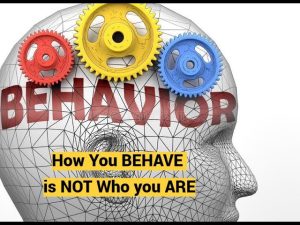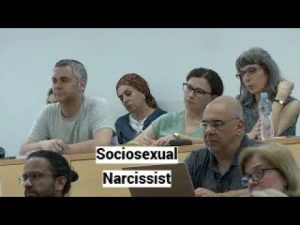Pathological Narcissism and Victim’s False Self Development
1. Contagion of Narcissism
- Exposure to a narcissist can cause the victim to develop narcissistic behaviors, effectively becoming a replica or clone of the abuser in order to survive the abuse. Victims adopt narcissistic traits to cope and protect themselves [00:00].
2. Victim’s Transient False Self
- Victims develop a transient false self, functioning as both an imaginary companion and a transitional object. This false self serves dual purposes: protecting the victim against the abuser and placating the abuser by conforming to their demands [01:20].
3. Imaginary Companion Concept
- An imaginary companion, often an imaginary friend, is created by victims as a protective psychological mechanism. This concept aligns with symbolic play in psychology and can manifest as a supportive fictitious figure that provides emotional security [05:05].
4. Transitional Object and Security Blanket
- The transitional object (e.g., blanket, doll) provides emotional security to ease separation anxiety, a mechanism observed in early childhood and mirrored in victims of narcissistic abuse using the false self as such an object [06:35].
5. False Self vs. True Self
- The false self develops as a defensive adaptation present in victims exposed to narcissistic or abusive parenting. It contrasts with the true self, which develops in nurturing environments. The false self imitates or adapts to the environment, while the true self expresses innate impulses [08:00].
6. Impact of Abusive Parenting on Self Development
- Various forms of inadequate parenting (overprotective, spoiling, narcissistic, etc.) contribute to development of the false self. Children adapt to rigid environments by denying their true self, leading to imitation and simulation rather than authentic expression [09:20].
7. Behavioral Tactics of the Abuser
- Narcissists use ambiguity, unpredictability, and intermittent reinforcement to maintain control and confusion within the victim. Ambiguity forces the victim into constant mentalization and efforts to decode the abuser’s intentions, increasing psychological distress [11:40].
8. Ambiguity and Mentalization Efforts
- Victims try to create theories of mind to regain control by interpreting apparent contradictory messages and hidden meanings in the abuser’s behavior, which in reality keeps them destabilized and anxious [13:15].
9. Secure Base and Attachment Theory
- A secure base, typically formed via attachment to a caregiver, allows exploration and emotional safety. Narcissistic abuse destroys this safe base, creating insecurity, instability, and disrupts healthy attachment styles in the victim [15:05].
10. Impact of Narcissistic Abuse on Attachment and Love Perception
- Narcissists communicate that unconditional love is impossible; love is only given under conditions of idealization. This undermines the victim’s secure attachment and promotes insecurity, rejection of true self, and reinforces false self behaviors [18:00].
11. Security Theory and Operations
- The lack of secure dependence in early life (security theory) hampers exploration and development. Victims engage in security operations (defense mechanisms like anger, arrogance) to cope with anxiety caused by abuse, reflecting adaptive but maladaptive responses [20:40].
12. Narcissist’s Denial of Separation and Fusion Desire
- Narcissists often have never individuated from their own caregivers, so they deny separation from the victim, seeking symbiotic fusion. This denies the victim’s autonomy and transforms them into internal objects, making resistance difficult [22:30].
13. Long-term Effects and Necessity of No Contact
- Prolonged exposure to narcissists increases narcissistic traits in victims, making recovery difficult and prolonged. The recommended survival strategy is immediate and complete no contact to prevent further psychic contamination and regain true self [24:40].






